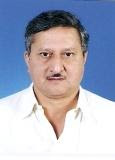Indian agoraphobia, knowledge restrictions and the Internet
Over some centuries (20?), Indians have grown into a conservative society. We have a maze of negativity skilfully structured in us over millennia. Adversely, following a consistently conformist behaviour paints anxiety and depression as a background on the social canvas. As Indians, we never knew openness, always shrouded ourselves in secrecy holding ourselves back in life. Our teachings and knowledge about anything was never made public. The knowledgeable chanted in Sanskrit, a language only chosen few were allowed to learn. Information or skill was always a family heirloom passed from a father to a son, or taught to a select few. Lack of proper documentation was favoured so that truth remained hidden. One was never encouraged to think independently, attempt anything new. We dwelt in feudality.
An extreme agoraphobic negativity India practiced and the vestigial derivatives of which still linger in our national psyche was the ban on crossing the seas. Possibly the last Indians who crossed the borders and the seas to trade, or to spread religion were around King Ashoka’s period. Later, when the European pirates, commercial seafarers and empire builders were looting India, the Indian religion had drawn a Laxman Rekha around its borders. During this period, there is no record of Indians crossing the seas to interact, explore and know rest of the world, no agricultural products and innovations imported from abroad, no art, science or cultural exchange. No, nothing! We were cooped up like chicken in the prison of our own making. We still fail to acknowledge the immense harm done to our nation by this imposition. We glorify India chanting ‘India is the Best’ tune, but, irrespective of other facets of societal evolution, the almost total blackout in arts and science really did India in. The German nation has gone through holocaust in mid forties, Japan was virtually scorched in nuclear fire, but these nations have stopped cribbing over it. They look forward to the ‘New Age’. However, to Indians the partition, which took at around the same time, still haunts. We still continue to embrace perceptions and consequences of the partition and of past Muslim invasions. These have now been rusting in the passages of time and, yes, the Internet is helping much in this.
Late Mr. Raja Mangalvedhekar, a Marathi litterateur, defined generation by events and not on time scales, as is the tradition. His reasoning is that in the old times news of any event happening in the world would take around 30 years to spread all over. Today, he wrote in one of his stories, it takes a matter of seconds for the Global village to know about virtually anything. This news may bring about changes in your circumstances, personality and approach to life. In 2008, multitudes of new generations a la Mr. Mangalvedhekar are on the voting list of India but its socio-political leaders have buried their heads in the sands of time. They accept new technologies only to further their medieval ideas. These appear to be successors of the same cult that burned its women alive simply because the husband happened to have died. Don’t they still continue to do the same?
Another telling example: Have a look at Hindu temples in India. The sanctum sanctorums in these have always been so small! The mighty temple builders never realized they have shrunk Gods. You have to struggle to see the deity even if you are a believer. But, we philosophise ad infinitum. We look at things either through microscopes or telescopes. Normal practical range has always eluded us. Our farmers look up to the rain clouds but ignore to conserve the rain water or irrigate their farms. We refuse to see the truth in front, as it is, but worry about the illusiveness of truth! Ironically practicality of truth itself has been eluding us.
We have become paranoid.
A ray of hope was kindled around the turn of the last century. There were leaders with social messages and an overall ‘Indian’ outlook. Mahatma Gandhi even had global outlook. Today, I search around just to know one social leader whose influence transcends boundaries of the state, caste and religion. But the species seems to have become extinct after the Independence. This is the real tragedy in modern India. Fortunately, possibly, things could be changing!
Now, the only social leaders are not humans but Internet and media. It is through Internet that I learnt about how the Stupas built by Buddhist and Jain monks were obliterated or changed into something else by Hindu kings. How, loot and plunder and not religious dominion was the main aim of many of the Muslim invaders. It was also Internet, which told me that Indian Jain monks and mathematicians had inspired a series of numbers known worldwide as ‘Fibonacci Series’. Without a free Internet this might not have become possible. Through it, knowledge in fields such as medicine, science, art, environment, and history is open to its seekers for their ‘enlightenment’. And yes, religion, too!
But, ex-President Dr. APJ Kalam wanted to regulate Internet and Google, just as China does. When, in around 1995, even before Google was born, an annual calendar published in France could carry 1.0 x 0.75 meters photograph of Delhi airport depicting the number and type of aeroplanes parked on the tarmac, from whom to hide knowledge, that too, in this age of openness?
Old habits really die hard.
Kalidas Sawkar
11, Singbal Bld. Tonca, Caranzalem, Goa
k.sawkar@rediffmail.com
9420975758
Subscribe to:
Post Comments (Atom)

No comments:
Post a Comment